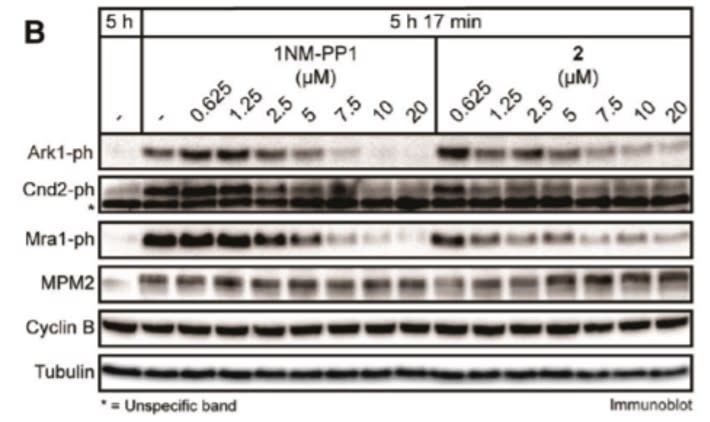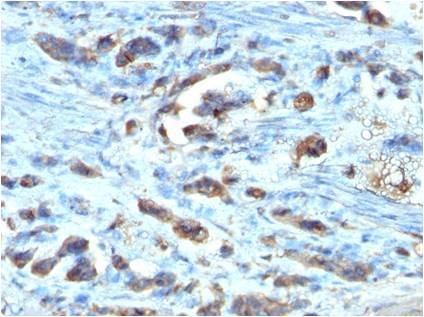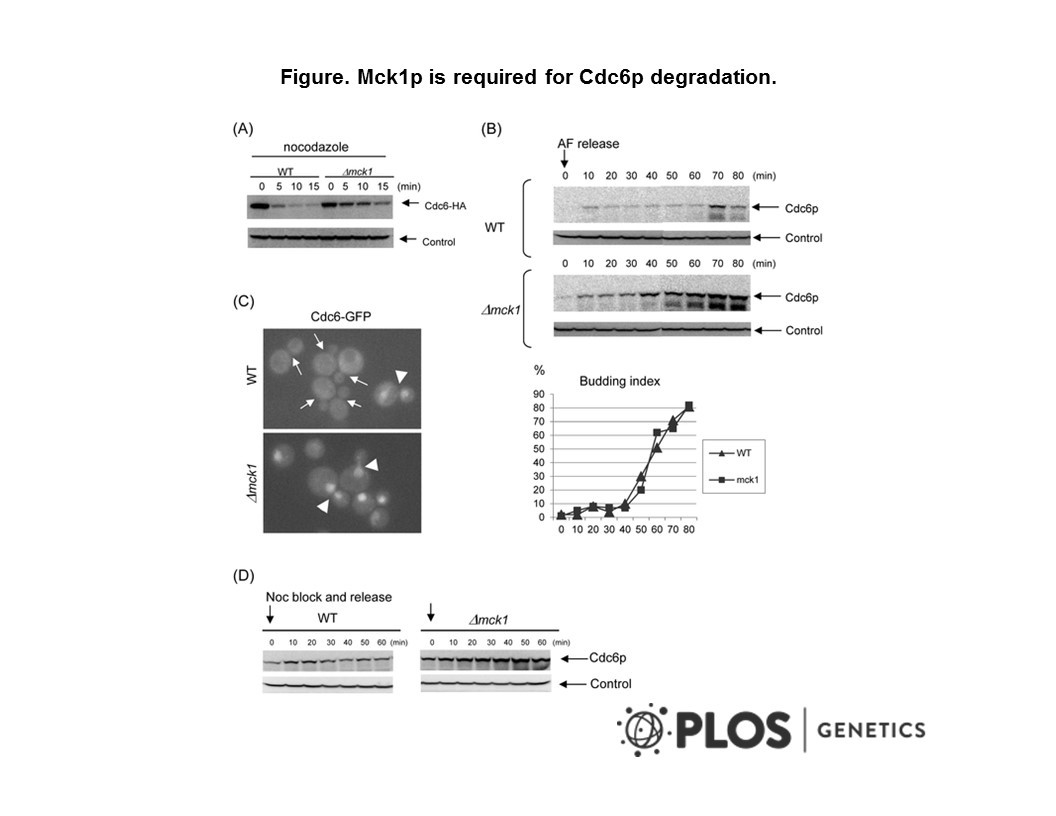Cat. #151061
Anti-Cdc13 [6F11/2]
Cat. #: 151061
Sub-type: Primary antibody
Unit size: 100 ug
Availability: 3-4 weeks
Target: Cell-division cycle protein 13 (cdc13)
Class: Monoclonal
Application: WB ; IHC ; IP ; WB
Reactivity: Schizosaccharomyces pombe
Host: Mouse
£300.00
This fee is applicable only for non-profit organisations. If you are a for-profit organisation or a researcher working on commercially-sponsored academic research, you will need to contact our licensing team for a commercial use license.
Contributor
Inventor: Jacqueline Hayles
Institute: Cancer Research UK, London Research Institute: Lincoln's Inn Fields
Tool Details
*FOR RESEARCH USE ONLY (for other uses, please contact the licensing team)
- Name: Anti-Cdc13 [6F11/2]
- Alternate name: Cell division control protein 13; YDL22C
- Research fields: Genetics
- Clone: 6F11/2
- Tool sub type: Primary antibody
- Class: Monoclonal
- Conjugation: Unconjugated
- Strain: Balb/c
- Reactivity: Schizosaccharomyces pombe
- Host: Mouse
- Application: WB ; IHC ; IP ; WB
- Description: 6F11/2 can be used for detecting Cdc13 and associated Cdk1 kinase activation.
- Immunogen: Full length cdc13
- Isotype: IgG2a
- Myeloma used: Sp2/0-Ag14
Target Details
- Target: Cell-division cycle protein 13 (cdc13)
- Target background: Cdc13 is a fission yeast (S. pombe) B-type M-phase cyclin. Cdc13 binds to Cdk1 (cdc2), and the resulting Cdk1-Cdc13 complex controls the G2/M transition of the cell cycle.
Applications
- Application: WB ; IHC ; IP ; WB
Handling
- Format: Liquid
- Concentration: 1 mg/ml
- Unit size: 100 ug
- Storage buffer: PBS with 0.02% azide
- Storage conditions: -15° C to -25° C
- Shipping conditions: Dry ice
References
- Rothe et al. 2017. J Cell Sci. 130(23):4028-4037. PMID: 29046339.
- Koch et al. 2012. ACS Chem Biol. 7(4):723-31. PMID: 22264160.
- Okuzaki et al. 2010. Cell Cycle. 9(18):3751-60. PMID: 20855961.
- Decottignies et al. 2001. J Cell Sci. 114(Pt 14):2627-40. PMID: 11683390.






